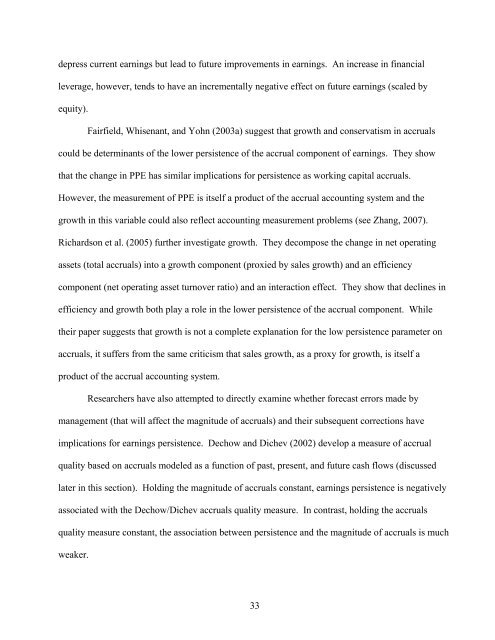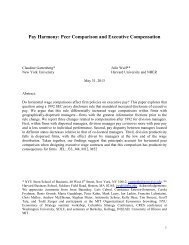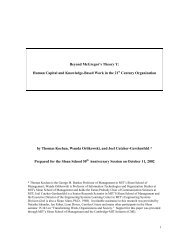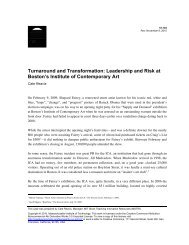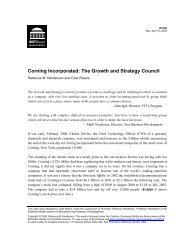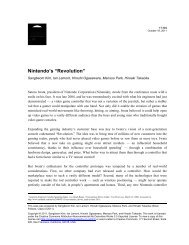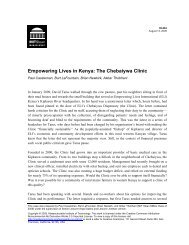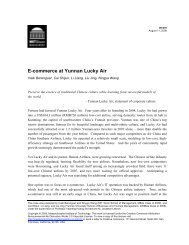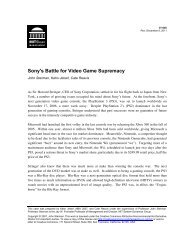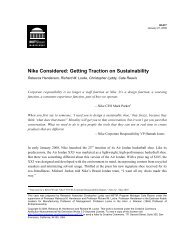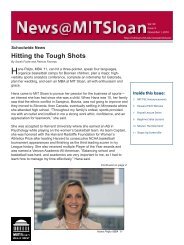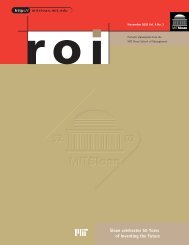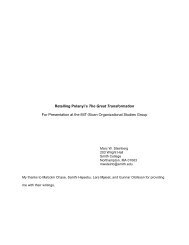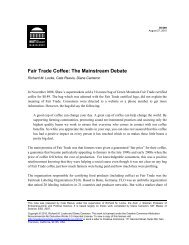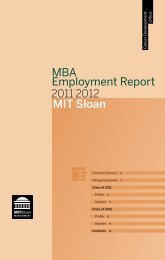Understanding earnings quality - MIT Sloan School of Management
Understanding earnings quality - MIT Sloan School of Management
Understanding earnings quality - MIT Sloan School of Management
Create successful ePaper yourself
Turn your PDF publications into a flip-book with our unique Google optimized e-Paper software.
depress current <strong>earnings</strong> but lead to future improvements in <strong>earnings</strong>. An increase in financial<br />
leverage, however, tends to have an incrementally negative effect on future <strong>earnings</strong> (scaled by<br />
equity).<br />
Fairfield, Whisenant, and Yohn (2003a) suggest that growth and conservatism in accruals<br />
could be determinants <strong>of</strong> the lower persistence <strong>of</strong> the accrual component <strong>of</strong> <strong>earnings</strong>. They show<br />
that the change in PPE has similar implications for persistence as working capital accruals.<br />
However, the measurement <strong>of</strong> PPE is itself a product <strong>of</strong> the accrual accounting system and the<br />
growth in this variable could also reflect accounting measurement problems (see Zhang, 2007).<br />
Richardson et al. (2005) further investigate growth. They decompose the change in net operating<br />
assets (total accruals) into a growth component (proxied by sales growth) and an efficiency<br />
component (net operating asset turnover ratio) and an interaction effect. They show that declines in<br />
efficiency and growth both play a role in the lower persistence <strong>of</strong> the accrual component. While<br />
their paper suggests that growth is not a complete explanation for the low persistence parameter on<br />
accruals, it suffers from the same criticism that sales growth, as a proxy for growth, is itself a<br />
product <strong>of</strong> the accrual accounting system.<br />
Researchers have also attempted to directly examine whether forecast errors made by<br />
management (that will affect the magnitude <strong>of</strong> accruals) and their subsequent corrections have<br />
implications for <strong>earnings</strong> persistence. Dechow and Dichev (2002) develop a measure <strong>of</strong> accrual<br />
<strong>quality</strong> based on accruals modeled as a function <strong>of</strong> past, present, and future cash flows (discussed<br />
later in this section). Holding the magnitude <strong>of</strong> accruals constant, <strong>earnings</strong> persistence is negatively<br />
associated with the Dechow/Dichev accruals <strong>quality</strong> measure. In contrast, holding the accruals<br />
<strong>quality</strong> measure constant, the association between persistence and the magnitude <strong>of</strong> accruals is much<br />
weaker.<br />
33


